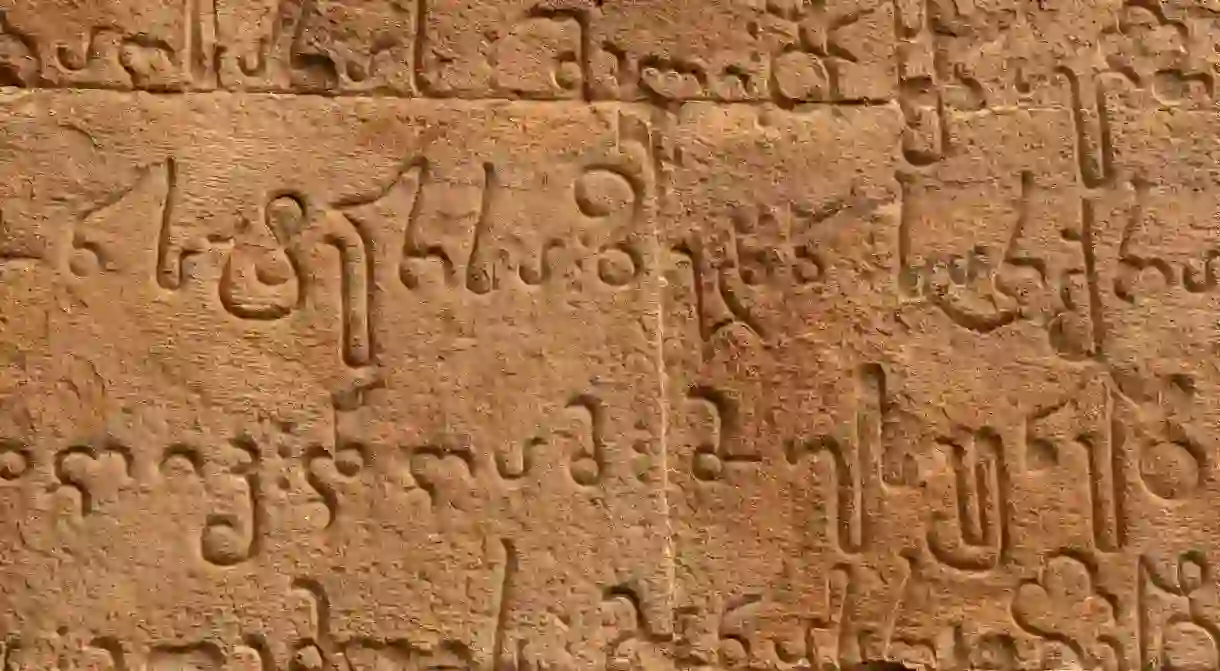12 Incredible Facts About the Georgian Language

The Georgian language is one of the oldest in the world. It has its own alphabet and differs from any other language. It’s not fully known when the Georgian script emerged or which alphabet was the inspiration for it. There are different historical sources and opinions on each. What makes this language so unique? Here are some incredible facts you need to know.
The creation of the script links to King Parnavaz
According to one Georgian scholar, King Parnavaz created Georgian script. The exact dates of King’s reign are not known, but according to the latest sources, he ruled in the third century BCE, and many scholars do consider this period as the birth of Georgian alphabet.
Georgian script has three alphabets
Over time Georgian script has evolved from its original form and has undergone three stages – Asomtavruli, Nuskhakhutsuri, and Mkhedruli. The latter is what Georgians use today and has 33 letters. The script doesn’t have capital letters, and you can often see three or four and even up to eight consonants in a word.

Georgian isn’t hard to learn
The stereotype that the Georgian language is complicated and very hard to learn is probably due to its uniqueness and isolation from other languages. It is straightforward to learn. The only real difficulty is the verb system.
Only four million people speak Georgian
The language is spoken only by 4m people as a first or second language, the majority of whom live in Georgia.
There are three other languages spoken in Georgia
The Georgian language has at least 18 dialects. Standard Georgian is based on Kartvelian dialect. Those dialects still retain their unique features regarding morphology, syntax, vocabulary, and phonology, and are similar to each other. Additionally, there are three other languages, Mengrelian, Svan and Laz, spoken in the country. These languages are common in the western part of Georgia.
Hello in Georgian means victory
The standard greeting ‘Hello’ in Georgian, ‘Gamarjoba’, means ‘victory’ and reflects country’s complicated past of endless attacks and war. Similar to ‘Gamarjoba’, ‘good morning/evening’ in Georgian would be ‘dila/saghamo mshvidobisa‘ which means ‘morning/evening of peace.’
The third person in Georgian doesn’t have a gender
Unlike English and many other languages where the third person has a gender, Georgian doesn’t. When Georgians want to identify a person in a conversation, they say ‘that’ instead of he or she.

Georgians add letter I at the end of a word without a vowel
If a word ends without a vowel, Georgians add letter I in the end, be it a foreign word or a foreign name and a surname. For instance, the name Zeinab in Georgian would be Zeinabi, while a family name Kidman, would be Kidmani.
You can tell which region a person is from by their surname
Georgian family names are deeply linked to the regions of Georgia, and you can easily guess where that person is from by their name. As people move around the country over time, this might not be so accurate today, but some surnames are very easy to identify.
Georgian numerals are similar to French
Georgians use digits based on twenty. For example, 84 is pronounced like ‘four times twenty and four.’
There are three words for ‘yes’
The Georgian language has three types of ‘yes’ – diakh (formal), ki (informal) and ho (colloquial).













